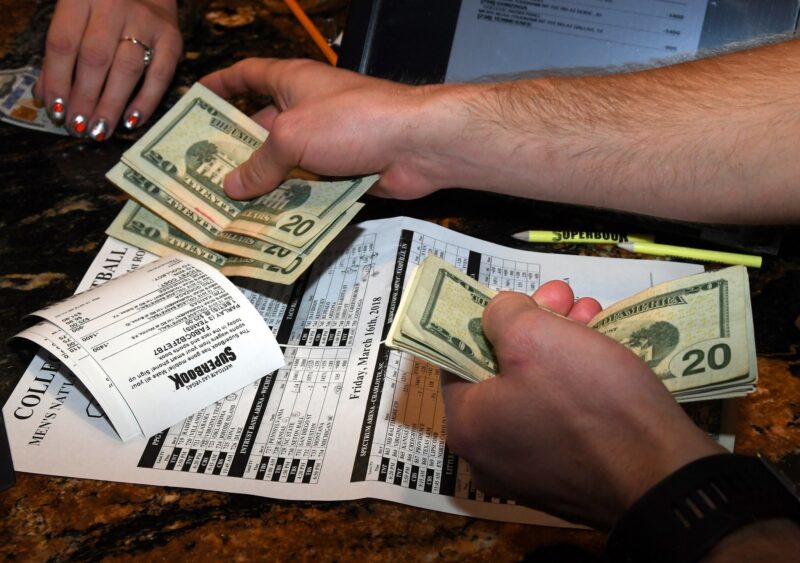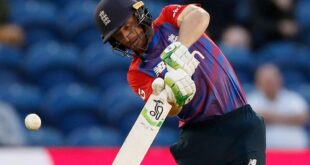Are you interested in starting a sports betting career, even if it is part-time? Or are you an experienced pundit with an in-depth knowledge about everything “sport and sports betting?” Even though you might be skilled, knowledgeable, and experienced at profitable wagering, reviewing the basics is not a bad thing. Therefore, let’s consider the two most popular betting options, in no specific order of popularity.
The match or win bet
This bet is the simplest wager available for pundits to wager on their favourite sporting events. The bettor gets to decide which of two teams or individual players will win their encounter. A draw is also added into the mix for sporting events like English Premier League football matches.
The best way to describe this wager is to cite a simple case study.
Let’s assume you’d like to wager on the outcome of the football match between Norwich and Everton. The betting odds are listed as follows:

- Everton: 19/20 or 51.28% probability of winning the match
- Norwich: 14/5or 26.32% probability of winning the match
- Draw: 13/5or 27.78% probability of a draw
By looking at the implied probability percentages, it is obvious that Everton is the clear favourite to win the encounter.
Therefore, it makes sense to wager on Everton to win. Finally, if you wager £100 on Everton to win, your total payout, including the original stake (£100) and the winnings (£95) will be £195.
The point spread bet
As an aside, should you wish to take advantage of any of these wagering options, you have to open a sports betting account with a bookmaker like the sportsbooks listed on the Silentbet sports betting review site.
The point spread bet does not require bettors to determine the final outcome of the match. It is designed to even out the odds between two teams; thereby, allowing the underdog to compete on the same footing as the favourite. Consequently, the bet is all about the goal difference between the two teams. The favourite is disadvantaged, and the underdog is advantaged by specifying the number of goals the favourite has to win by, and by how many goals the underdog can lose by.
Again, let’s consider a small case study to describe this scenario:

If we continue using our example of the match between Everton and Norwich and continue with Everton as the favourite to win. However, the betting odds have changed to represent the goal difference between the two teams.
- Everton -2.5 (-113)
- Norwich +2.5 (-116)
The minus sign in front of the 2.5 indicates that Everton is the favourite to win. However, they have to win by more than 2.5 goals for this wager to be successful. And, Norwich as the underdog (indicated by the plus sign), has to either win the match or lose by less than 2.5 goals for this bet to be successful.
And finally, let’s look at the potential payout should either wager be successful. If Everton wins by 2.5 goals or more, to win £100, you have to wager £113. And, should Norwich win or lose by less than 2.5 goals, then to win £100, you have to wager £116.
Handicap betting
This form of betting is popular in many countries and for several sports. It is similar to point spread betting in that its raison d’etre is to use handicapping to even the odds between participants.
A typical example of where handicap betting is used is horse racing.

Wikipedia defines a handicap race as one where“horses carry different weights, allocated by the handicapper.” Ergo, afaster horse “will carry a heavier weight, to give it a disadvantage when racing against slower horses.”
In other words, a horse that has the best chance of winning the race carries enough weight (lead weights), including the jockey’s weight, in special pockets on the racing saddle that it wears to give the slowest horse an equal chance of winning the race. These weights are allocated based on the individual horse’s form over time, the horse’s body language and behaviour in the paddock before the race, and the changing betting odds offered by the different sportsbooks or bookmakers. The changing odds demonstrate the betting pundits’ view on which horse has the best chance of winning the race.
Therefore, the question that begs is how do you wager successfully on a handicapped horse race? By way of answering this question, let’s consider the following scenario as a description of how handicaps affect a horse race and its outcomes.
- Horse A is rated 70 and is the best horse in the field both in form and in ability.
- Horse B tends to finish toward the front of the middle pack, just behind the leaders. Therefore, it is rated 60.

Horse C tend to end towards the back of the pack. It is rated 40 because it tends to fight to go into the starting gates and uses up so much energy at the start that it ends up at the back of the race. However, it has a lot of potential.
What we know:
- We know that if horse A and horse B carry the same weight, horse A will beat horse B. Therefore, horse A must carry more weight than B. In other words, horse A is handicapped against horse B.
- Horse C carries the least weight because it is the least likely to win against horse A and B if carrying the same weight as the other 2 horses.
Unfortunately, betting on a handicapped race is more difficult because the race structure is designed to ensure that all participants are equal. Consequently, statistics show that the percentage of favourites that win the race is much lower than that of a non-handicapped race. Therefore, it is not always advisable to go with the favourite to win the race. The trick is to consider other options such as considering the alternatives to the favourite to win. Aspects to consider are how long the horse has been racing, how well it has run over time, and what handicap class has the horse being racing in.
Together, all of these indicators should give you a good idea of which horse to back in a handicapped race.
 Poker Players Alliance Casino & Gambling Articles 2024
Poker Players Alliance Casino & Gambling Articles 2024






